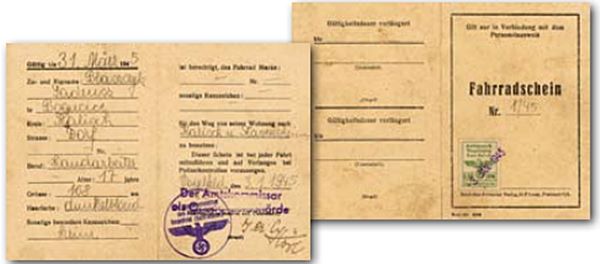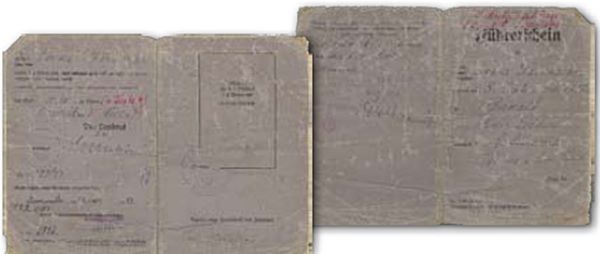“bicycle card”, “bicycle”– license. Using transportation during the war was difficult, both because of the German segregation legislation when using public transport, as well as restrictions imposed by certain specific provisions. For example: in the territory of the Reich bike was forbidden for Polish nationals, e.g. police in Szczecin has banned its use. In the Warta (Kraj Warta) handling a bike would be allowed with a special police permission. In the case of the distance to work being less than 2 km, this permission could usually not be obtained. Bicycles owned by Poles had also sometimes special markings – for example, in Leszno the fenders had to be painted white at the frame and rear. Such restrictions were not enforced in the annexed lands of Silesia and Pomerania (Śląsk and Pomorze). In practice, the use of the bicycle was limited due to the small allowance of tires for the Poles. In the last year of the war it was possible to apply for the permission only if the road to work was 5-10 km. To be employed by a transportation company or another company which supplied transportation services it was required to hold a driving license. The employer could refer the employee to special professional courses (to obtain driving-license), which were organized by official bodies or companies qualified to do so. Often people were forced to participate in professional training in order to get additional qualifications. For example a driver assistant could become a driver after the training.

